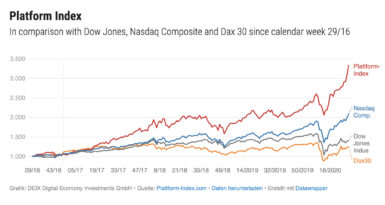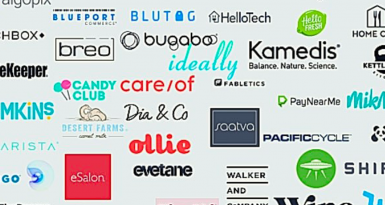
How to Navigate B2B Sales in Our New Virtual World. As part of the German Accelerator “Pass The Mic” series, we hosted a virtual fireside chat with serial entrepreneurs about adapting B2B go-to-market strategies and the extra adjustments that are required due to COVID-19.

NPS has been the golden standard since its commencement almost 20 years ago where Fred Reichheld and Bain introduced it to assess consumers’ likelihood to recommend products. Several consulting companies have since brought NPS into the B2B vertical.

Not just the best product, but the right business model determines success or failure in today’s digital markets. Apple could outperform Nokia in the past, due to the changing the business model based on product platform. The interactions around the iPhone has been transformed into one and more platforms with the two million applications from the App Store and all other Ecosystems around the business model. Later on, Amazon could outperform the online competition based on the platform strategy with three million retailers created a superior offering.

The CEO’s job in the budget process is an art, not a science. Yes, the actual budget itself is a mathematical spreadsheet that needs to balance across every row and column. But a strong CEO knows how to use a budget like a work of art to drive priorities, create compelling messaging to all of the various parties, and powerfully motivate the teams. In my years as CEO, here’s what I’ve found to be the most important components in creating a powerful budget.

Direct-To-Consumer (or DTC) companies manufacture and ship their products directly to buyers without relying on traditional stores or other middlemen. This allows DTC companies to sell their products at lower costs than traditional consumer brands, and maintain end-to-end control over the making, marketing, and distribution of products.

In Part 1 of this piece on minimizing Cultural Debt in your organization, we explored how some high level best practices for managing your consumer credit score (specifically the FICO score in the U.S.) can readily apply to intentional investment in employee goodwill.

I came from Ireland to New York City in the late ‘90s with no job or home lined up. All I had was a few hundred dollars to my name and a promise of a one-week couch crash from a friend whose roommate’s patience would turn into a pumpkin (one of those scary jack-o’-lantern ones) on night eight.

Creating a Trust Environment is a challenge for any business but particularly for the new and growing enterprise, knowing how and when can also be a question that many struggle with.

The world’s major gaming companies today have one strategic goal in common: ultimately, they all want to become platforms.
Apple and Google now boast billions of users on their app stores, Nintendo’s “My Nintendo” account program counts hundreds of millions of fans on console and smartphones, and Sony receives US$60 per year from each of their over 40 million so-called PlayStation Plus subscribers.